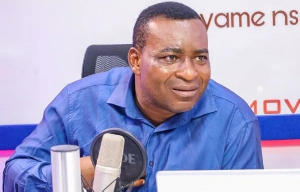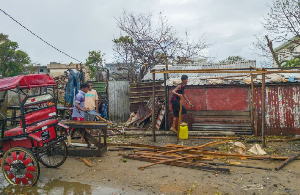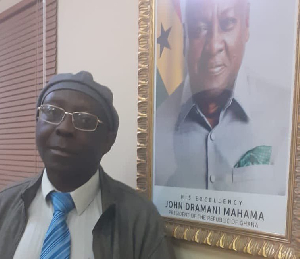Panellist at a four-day conference on; "Africa and the Development Challenges of the 21st Century" on Tuesday said the continent needed new leadership and a new voice to make a case for its development, if the continent were to survive the challenges of the new millennium.
One of the panellists, Professor Akilakpa Sawyerr, Chairman of the Board of Directors of Third World Network Africa (TWN-AF), said "unless we get a new voice in Africa and new interest in the international community, we will never make any economic progress in the 21st Century."
Prof. Sawyerr argued that 20 years of World Bank and IMF sponsored Structural Adjustment Programs (SAP) in Africa had failed woefully, saying within the same period African leaders also failed their peoples by first accepting the SAP and it diabolic conditionalities.
"Leadership on the continent between the 1980s and now has also failed us woefully and the question we really need to deal with is whether the same leaders and the same development partners will really solve our problem."
The conference is being jointly organised by TWN-AF and the Council for the Development of Social Research in Africa (CODESRIA) to critically look at and make recommendations on economic development paradigms and policy upon which the development process in Africa should be carried out.
About 60 African and foreign scholars, policy makers, government, private sector and civil society representative are attending the conference.
Prof. Sawyerr argued that any new development paradigm or policy, which did not consider the issue of responsible leadership, was bound to yield the same results as the SAP, saying that African peoples needed to vigorously charge their leaders to deliver on their political promises if African economies were to experience any revival.
"There is no doubt that most of the socio-economic ups and downs African economies have experience over the past 20 years are not only due to adverse international policies but also due to political instability, bad governance and corruption in the rank and file."
Prof. Sawyer called for a national, regional and continental discussion on the development challenges facing the continent, saying; "we need to critically examine the popular rhetoric about how Africa could develop to see whether they really offer any better solution against the SAP".
This, he said, was necessary to ensure that African economies did not become victims of the same World Bank/IMF adjustment policies under different identities, citing the Heavily Indebted Poor Countries (HIPC) Initiative as an example.
"Time is apt for us to re-think and restructure our development paradigms based on the needs and aspirations of our peoples and we must do this fast and in collaboration so that we are not overwhelmed by the fast rate at which events are occurring in the new millennium," he advised.
Dr Yao Graham, Co-ordinator of TWN-AF, said it was time for African governments to take citizens' voice seriously in considering whether one development paradigm or another was good for the people or not.
"African governments cannot keep ignoring the people's voice when, in fact, the people are most victimised by the diabolic conditionalities of the World Bank and IMF policies and assistance," he said.
General News of Wednesday, 24 April 2002
Source: gna












